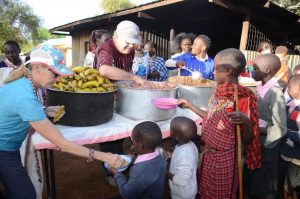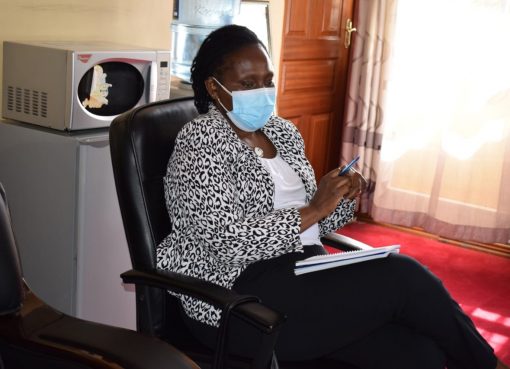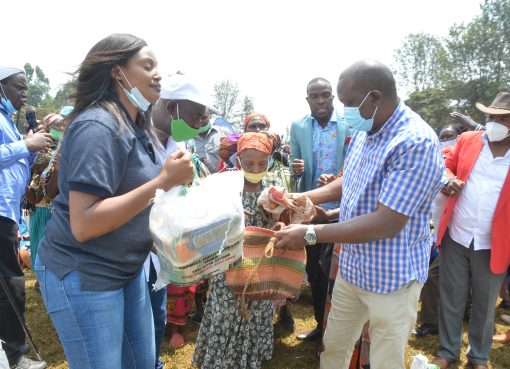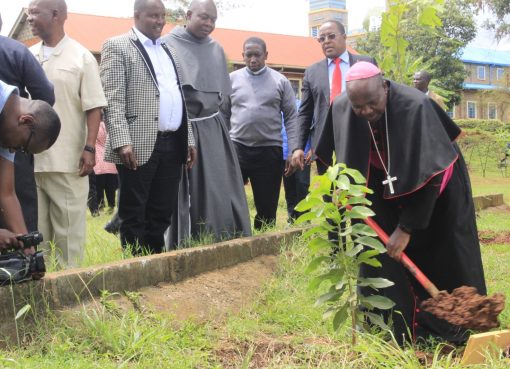Food donations have helped hundreds of vulnerable families in Kajiado sustain themselves and their children during the extended school holiday period.
Light up Hope, a Non-Governmental Organization (NGO), donated food to the families to cushion them from the effects of the extreme drought that was witnessed during the four seasons when it failed to get rain.

According to the organisation’s President, Kelly Shaughnessy, the holiday food pack is an extension of the school feeding programme and is aimed at ensuring that no pupil goes hungry while at home during the school holiday.
The school feeding programme launched last year has benefited 61,700 pupils from 171 primary schools in Kajiado County.
Speaking at Ilpartimaro Primary School, when she handed over food donations to the families, Shaughnessy said that the school holidays are a time when many children and their families experience food insecurity due to the unavailability of school meals.
“We undertook this initiative to support families in ensuring that no child goes hungry during the long holiday. She added that her organisation is education-focused and that they know that when a student has no food, their ability to learn and grow is diminished.”
Malachi Mutenge, a teacher at Ilpartimaro Primary School, reported an increase in student enrollment and improved performance due to the school feeding programme. He reported that classes were fully occupied and students’ performance was steadily improving due to better concentration when they were fully fed.
Mercy Parmeres, a parent, praised the school feeding programme for improving livelihoods and ensuring pupils enjoy lunch, even during holidays, despite the prolonged drought.
Light Up Hope Executive Director Moses Murage revealed that apart from the school feeding programme, their organisation was also providing full scholarships to needy but bright girls across the country so as to alleviate poverty by supporting the education of the bright but needy girl child.
“We are also offering full scholarships to bright girls from vulnerable backgrounds and currently supporting 21 primary students, 162 high school girls, and 104 girls in universities across the country,” he said.
By Rop Janet





